-----------------------------------------------------
Hello
and welcome!
I like
to explore what it means for people to live full and flourishing
lives, and how these can be enabled and supported at
organisational, industry, and policy levels. I seek to make a
meaningful contribution to progressive change at a time of multiple
crises through acknowledging our 'humanity' -
i.e., what it is like to be (human). I am interested in
the interconnections and interdependencies between human
creativity, art and culture, the arts and cultural and creative
industries, practices of care, authenticity, knowledge and truth.
This is a big topic, and takes me down many
paths(!)
My
current research is working towards a series of publications
dedicated to profiling and overcoming the dominance of what I term
the 'culture of knowing' - a culture that seeks to control and is
born of fear and anxiety concerning 'the unknown'. I seek to do
this through exploring and re-valuing different approaches to
wisdom and ways of knowing - notably not-knowing, unknowing and
transrational knowing.
I have previously researched and written extensively on early music and authenticity, creativity and care, cultural capability, a realist theory of art, and what I term Aesthetic Critical Realism (ACR). At the heart of ACR is a commitment to our learning to become more experienced in experiencing the world. I have defined experience in terms of our thought and un-thought knowledge of being-in-relation with the world. This is a definiton I keep coming back to, and I'm in the process of refining it in my ongoing research. It seems to me that 'experiencing' is too often marginalised or overlooked - with the result that we are in danger of 'falling out of being'.
Other definitions - all 'work in
progress':
Creativity
- the
discovery of the possibilities and potentials of the world and
bringing these into being; creativity involves recognising and
pursuing meaningful and valuable projects; such projects may or may
not get recognised as valuable by
others.
Art - the creative practice of
giving sharable form to people's experiences of being-in-relation
with the world; this includes people's connections with
all that is 'real' - how the world is (and is
not); such experiences constitute a particular form of knowing -
which we might label as aesthetic knowing. Human beings
make art in all sorts of contexts, and not just in 'the arts'. You
don't have to be an 'artist' to do art. However, the arts are vital
because this is where society gives permission to value aesthetic
knowing - which helps people recognise what they have reason to
value, and come to know what it is like to be human; it is in the
arts that society recognises the production, consumption and
all-round enjoyment of 'art-works' (see Culture - below); it is
also through the arts that the skills and competences to make art
(whether as artists or not) are learned and passed on to
others.
Culture - our systems of value
recognition (i.e. how we determine what matters). Understanding and
critically interrogating our systems of value recognition (the
market, politics, education, science, healthcare, and the arts) is
one of the emost important tasks we can embark
on.
Cultural capability - people's
substantive freedoms to recognise what they have reason to value (I
link this to the freedom to acknowledge our
humanity).
Cultural development - the
expansion of people's substantive freedoms (i.e. their
opportunities) to recognise what they have reason to value (and to
acknowledge our humanity).
Cultural needs - people's needs
to recognise what they have reason to value (comprising their needs
to connect, to create and to count).
Care - seeing and hearing
others' needs and taking responsibility to fulfil these needs.
Creativity and art are practices of care.
Cultures of care - the
cultures we reproduce and transform everyday that enable us
to care and be cared for. (See www.culturesofcare.com).
In 2022
I completed my involvement on a three-year research project focused
on Developing Inclusive and Sustainable Creative Economies
(DISCE). I led the development of a Cultural
Development Index (CDI) and a Needs-based Approach to
Governance.
I
regularly upload writings and links to publications, as well as
information about my current research interests and projects. More
details of my work at the Department of Culture, Media &
Creative Industries, King's College London is available on the
CMCI
website.
Please
do get in touch if you would like to collaborate!
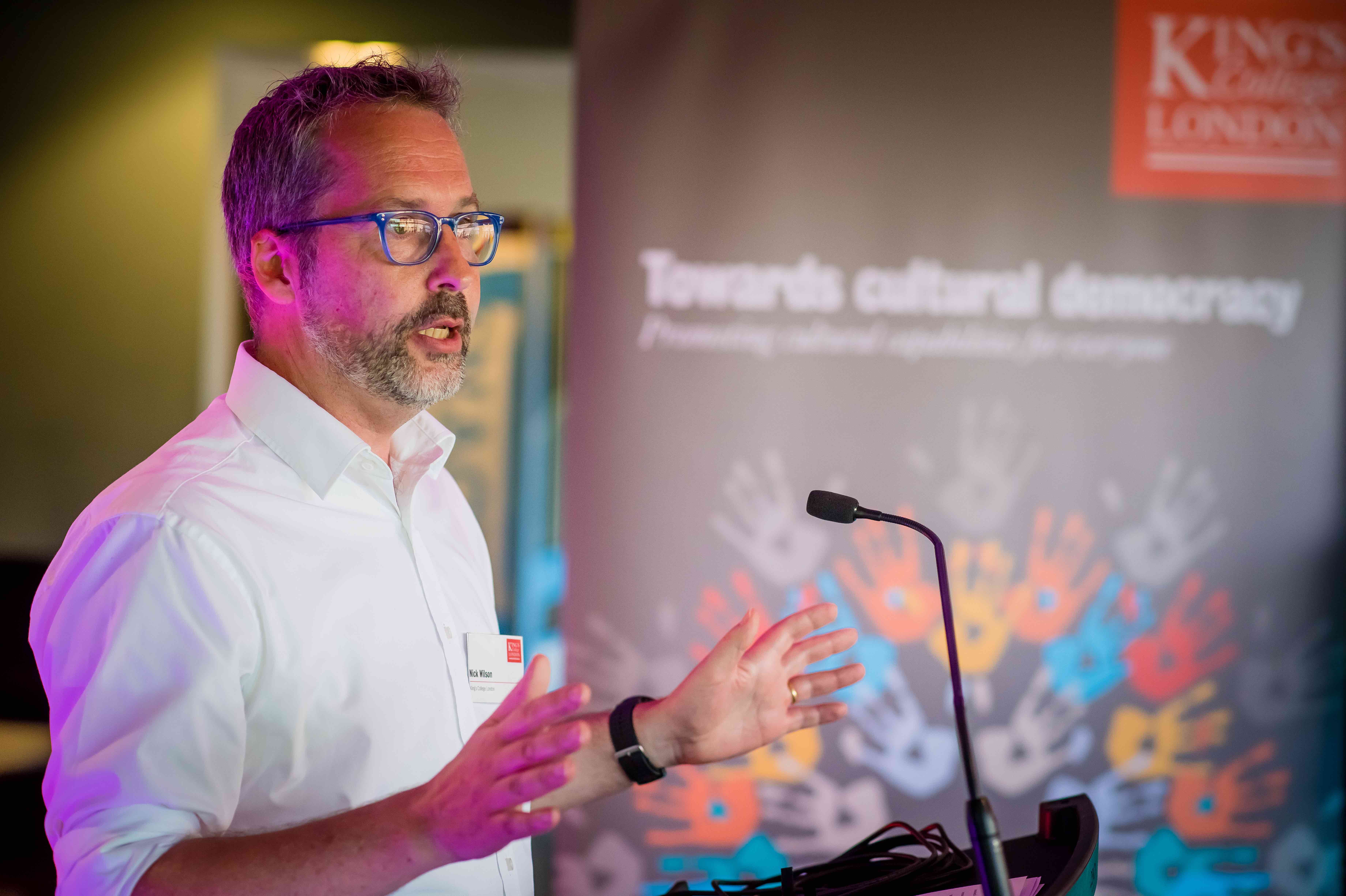
Credit: David
Tett
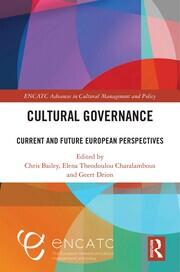
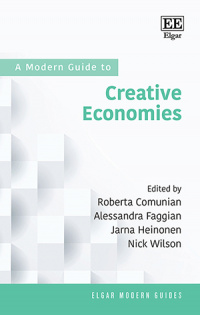
Beyond 'policy-based' cultural governance - chapter published 2024
This
chapter asks two questions - what is 'cultural governance'? And why
does it matter? It is a part of a collection designed to highlight
the importance of culture to broader policy agendas and the
inherent value of culture in addressing the challenges ahead in the
21st century.
A Modern Guide to Creative Economies - August 2022
Building on work for the Developing Inclusive and Sustainable
Creative Economies (DISCE) project, this new co-edited volume
offers a timely reflection on the importance of creative economies.
Alongside my contribution as co-editor I have a chapter titled
'What is the creative economy - really?' (submitted manuscript
version available below)
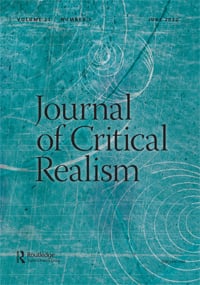
Symposium on The Space That Separates: A Realist Theory of Art
In July 2022 the Journal of
Critical Realism published a series of review articles on my book,
with contributions from leading academics who draw on critical
realism: Dave Elder-Vass, Andrew Sayer, Tobin Nellhaus, Ian
Verstegen and Alan Norrie. My response is titled Bridging the
Space that Separates. To download a free eprint please click
here.
On May 21st, 2021 I was invited to speak at the United Nations General Assembly High-Level Event on Culture and Sustainable Development. My panel talk was on 'The status of artists, cultural professionals and organizations: Equitable digital transformation to support COVID-19 recovery. A video of my talk is available here. The full programme of the event is available here.
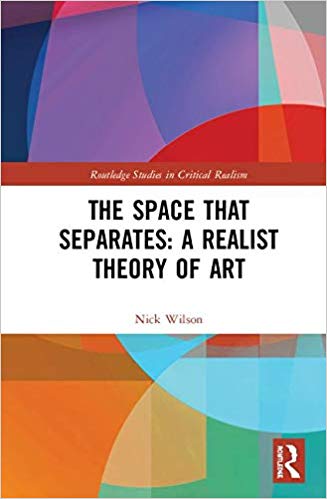
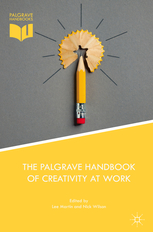
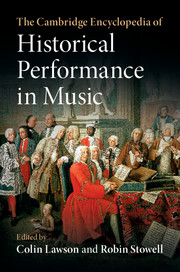
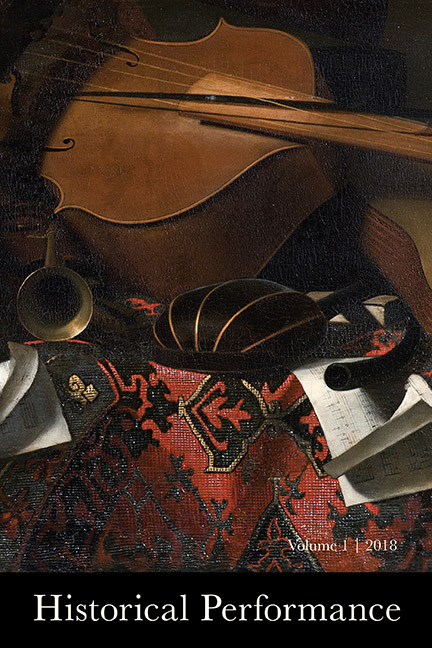
Providing the first dedicated and comprehensive account of art and aesthetics from a critical realist perspective – Aesthetic Critical Realism (ACR), Wilson argues for a profound paradigm shift in how we understand and care for culture in terms of our system(s) of value recognition. Fortunately, we have just the right tool to help us achieve this transformation – and it’s called art. Offering novel explanatory accounts of art, aesthetic experience, value, play, culture, creativity, artistic truth and beauty, this book will appeal to a wide audience of students and scholars of art, aesthetics, human development, philosophy and critical realism, as well as cultural practitioners and policy-makers.
The Palgrave Handbook of Creativity at Work
is
co-edited with my colleague and friend Lee Martin. It is comprised
of 30 chapters which explore the subject from a diverse set of
perspectives. As I outline in the final chapter's synthesis of
ideas, I believe that the handbook offers a genuinely new,
constructive (albeit challenging) way of thinking about creativity
(at work) as a structured practice of care. Chapters are available
to download here.
Entries I've written on "authenticity", "early music", and "Werktreue" are included in this new comprehensive encyclopedia of historical performance in music (2018).
.
I was honoured that my article "What's the problem? Cultural capability and learning from Historical Performance" features in this inaugural edition of Historical Performance (2018). For more details click here.
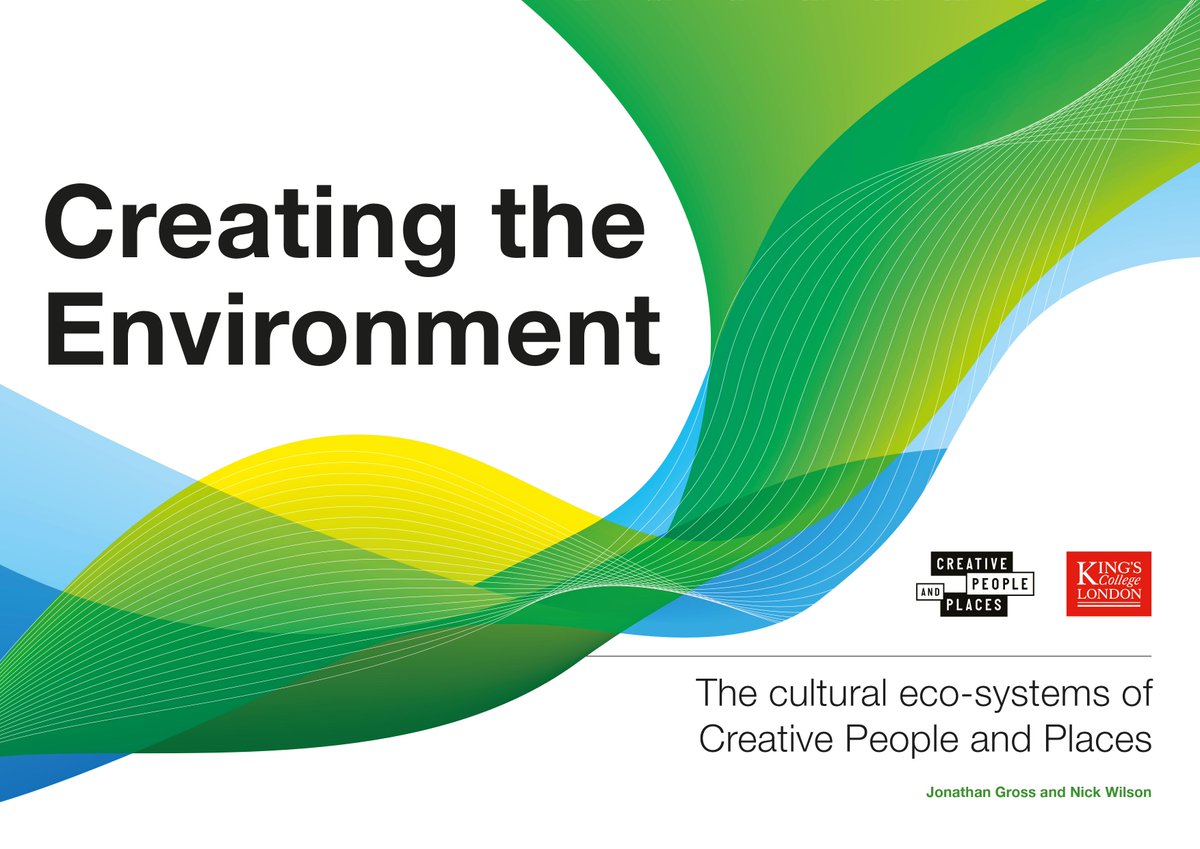
Towards Cultural Democracy: Promoting
Cultural Capabilities report launched, June 21st, 2017.
Downloadable
here.
This
research report with Jonathan Gross examines the cultural
eco-systems of Creative
People and Places projects and offers new ways to understand
what place-based programmes can seek to achieve in the long term.
The report also sets out some important considerations for the
development of flourishing cultural eco-systems.
Download your copy
here.
Caring for Cultural Freedom: An Ecological
Approach to Young People's Cultural Learning, launched
October 31st, 2017. Downloadable here.
Huffington Post article (24th May, 2017) by Tony Woodcock discusses the 'Entrepreneurship in Music' conference in Oslo, Norway in April, 2017, in which I gave the opening Keynote.
As
a conflation of the words ‘creativity’ and ‘if’ (as in
‘what if?’), creatifity carrys with it an aspirational
message about human creativity that is imaginative, emancipatory,
and value-positive. This is a message that informs my approach
to creativity research and practice.
“Creativity requires the courage to let go of
certainties”
Erich
Fromm
Contact: info@creatifity.com
Copyright 2022 (c)
Google Scholar: Nick Wilson